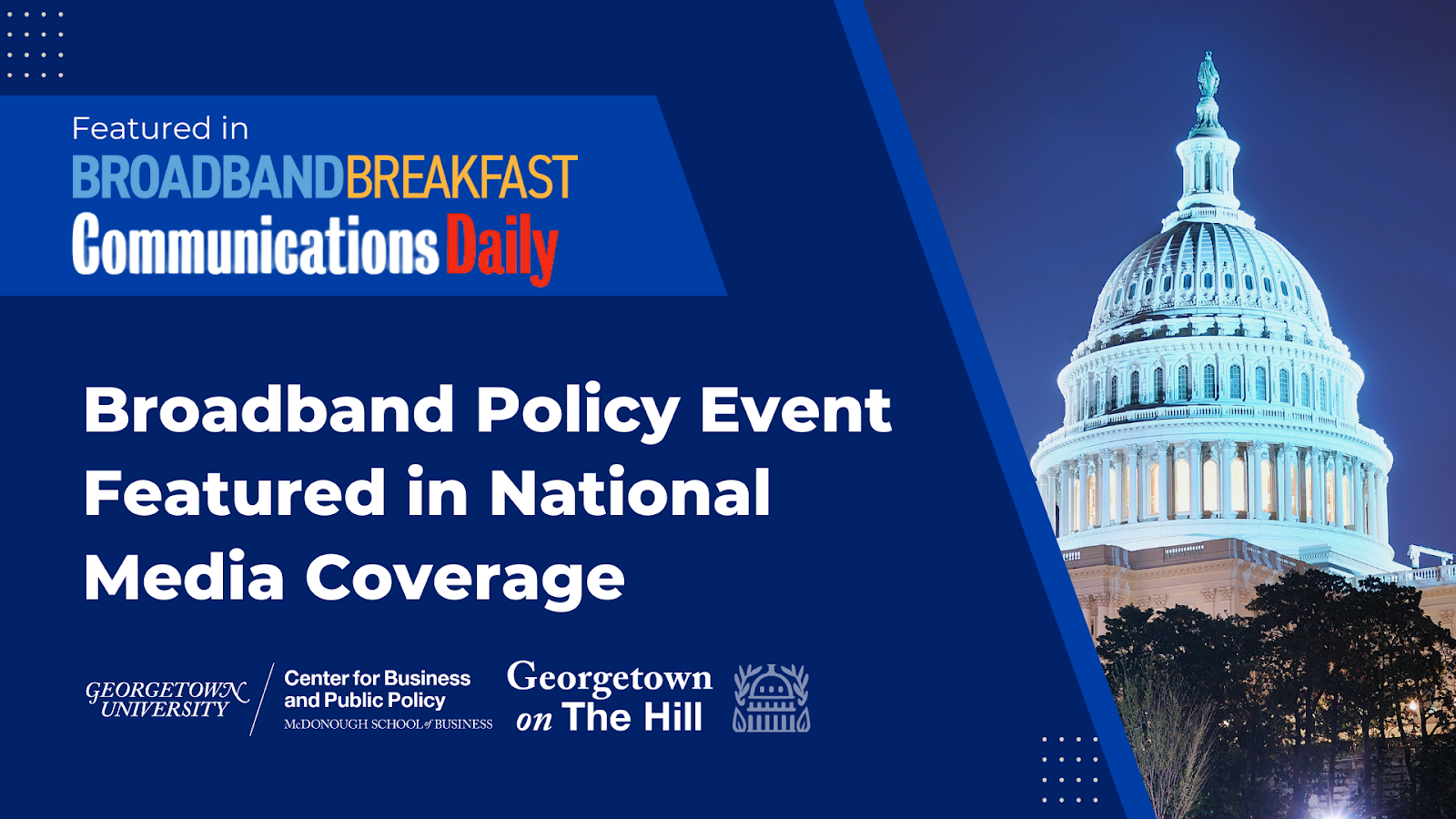Georgetown on the Hill: Broadband Policy Event Featured in National Media Coverage

Posted in News | Tagged Georgetown on the Hill
September 17, 2025 | Georgetown University Center for Business and Public Policy
The Center for Business and Public Policy at Georgetown University’s McDonough School of Business was featured this week in two leading industry outlets — Communications Daily, a top telecom policy trade publication, and Broadband Breakfast, a widely read news site focused on broadband and digital inclusion — for hosting a timely panel on broadband affordability and federal subsidy program design.
The event drew national attention not only for its findings but also for its timing: this Georgetown on the Hill event was held just ahead of Monday’s deadline for congressional comments on Universal Service Fund (USF) reform. As Communications Daily reported in its Sept. 17 coverage, lawmakers are weighing proposals ranging from broadening the pool of contributors to replacing the current system with direct appropriations.
Against that backdrop, panelists contrasted the Affordable Connectivity Program (ACP) — with its 43% participation rate — with Lifeline, which reaches only about 20% of eligible households. Both outlets underscored that program design and community partnerships were central to ACP’s relative success.
Broadband Breakfast credited Georgetown research with framing the discussion, citing the Beyond Participation Costs Economic Policy Vignette by Professors John Mayo, Jeffrey Macher, and Timothy DeStefano. The outlet noted that ACP’s higher adoption was “closely tied to strong partnerships between private providers, local governments, and trusted third-party outreach actors.” DeStefano emphasized that Federal Communications Commission outreach grants empowered community organizations to help households overcome barriers such as a lack of awareness and stigma.
Angie Cooper, president of Heartland Forward, was quoted in both outlets describing how “digital navigators” embedded in schools, churches, and neighborhood centers helped residents sign up. She pointed to grassroots campaigns — including flyers, radio ads, and billboards — that connected more than 100,000 households during the pandemic, later expanding to hundreds of thousands more through partnerships with Latino advocacy groups.
Communications Daily highlighted persistent challenges across means-tested programs, from stigma to transaction costs, and quoted Technology Policy Institute President Scott Wallsten, noting that “people value their time,” with some studies showing households would pay more to avoid digital literacy requirements.
Together, the coverage demonstrates how Georgetown is shaping the national conversation on digital inclusion. As Communications Daily observed, the discussion came at a pivotal moment in broadband policy — coinciding with congressional deliberations over the future of USF later the same day.
Video link: https://www.youtube.com/live/hTRUfKEY1DU
